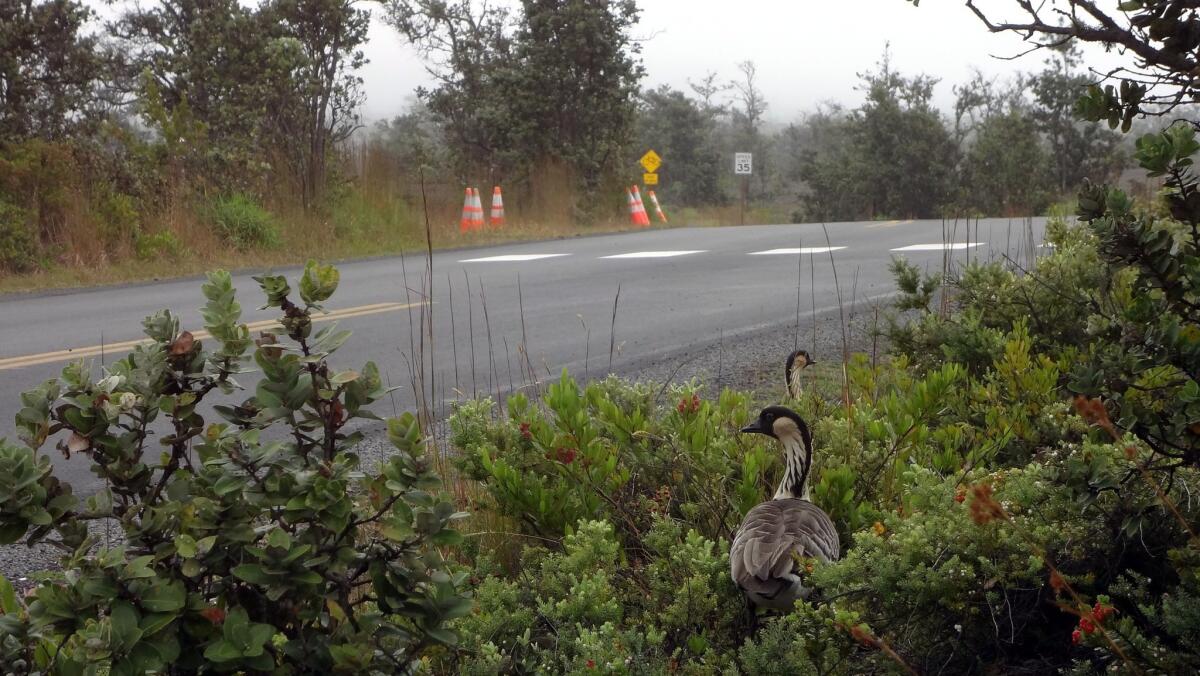Please don’t feed Hawaii’s rare state bird, the nene, and don’t run over it either
- Share via
Hawaii’s nene is one of the rarest geese you’ll ever see. In the early 1950s, only 30 of the endangered birds remained in the Hawaiian Islands, their only natural habitat.
The state bird has bounced back since then, but now faces a new threat: motorists.
Park rangers on Hawaii Island are warning drivers to make way for nene right now, when the young fledglings are most vulnerable.
The plea comes from Hawaii Volcanoes National Park after two nenes just 6 months old were killed last month by an unknown driver.

The endangered nene become more active, and therefore more visible, in late spring as fledglings, under the watchful eyes of their parents, test their wings.
The young birds can unpredictably land on roadways, according to wildlife biologist Kathleen Misajon, who manages the park’s Nene Recovery Program.
“Nene crossing” signs are posted in various parts of the national park to urge drivers to use caution. Visitors shouldn’t approach them or try to feed them either.
Thanks to the recovery program, the park alone now boasts a population of more than 250 of the world’s rarest goose.
Visitors who spot birds on the park’s roads are urged to report sightings by calling (808) 985-6170.
Info: Hawaii Volcanoes National Park
MORE:
Hilton Garden Inn comes to Waikiki Beach in a really big way
Hawaii: 5 things not to miss at Honolulu's big Pan-Pacific Festival
Hawaii: Where to really get away from it all on the Big Island
Hawaii's endless poke craze, stoked by new twists and traditional dishes
Sign up for The Wild
We’ll help you find the best places to hike, bike and run, as well as the perfect silent spots for meditation and yoga.
You may occasionally receive promotional content from the Los Angeles Times.



